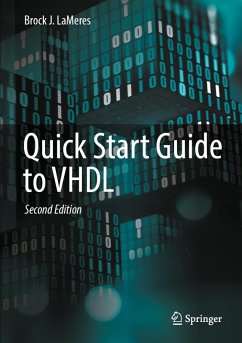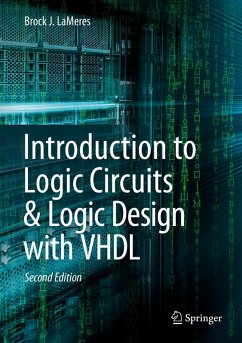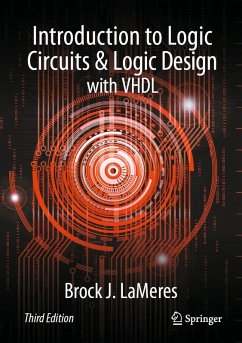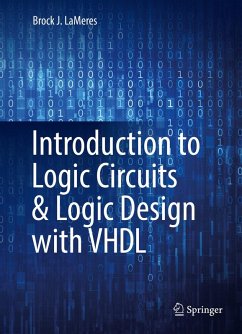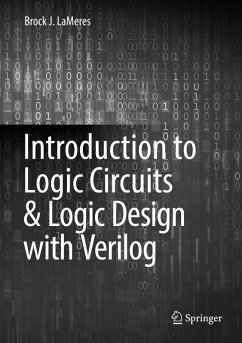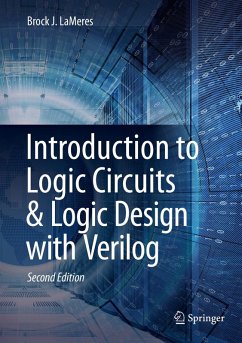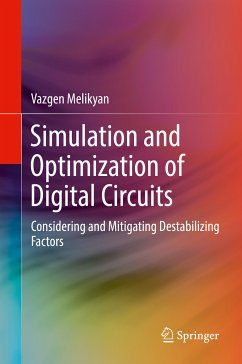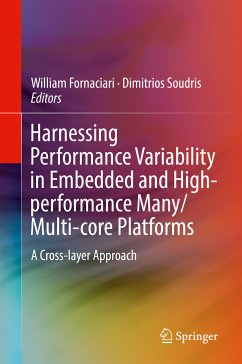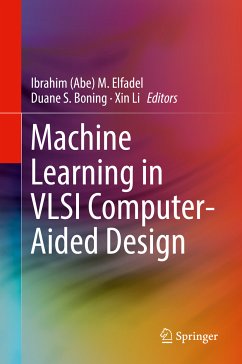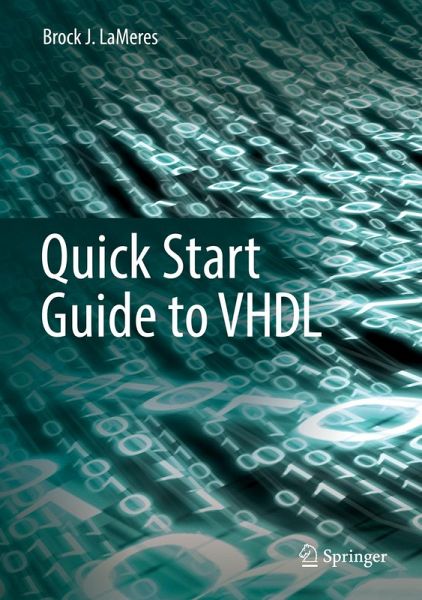
Quick Start Guide to VHDL (eBook, PDF)
Versandkostenfrei!
Sofort per Download lieferbar
56,95 €
inkl. MwSt.
Weitere Ausgaben:

PAYBACK Punkte
28 °P sammeln!
This textbook provides a starter's guide to VHDL. This book can be used in conjunction with a one-semester course in Digital Systems Design or on its own for designers who only need an introduction to the language. This book is designed to provide a bottoms-up approach to learning the VHDL language. This design supports a course in which foundational knowledge is covered before moving into advanced topics. However, this design also supports use as a reference manual. The author has designed the presentation with learning goals and assessment at its core. Each section addresses a specific learn...
This textbook provides a starter's guide to VHDL. This book can be used in conjunction with a one-semester course in Digital Systems Design or on its own for designers who only need an introduction to the language. This book is designed to provide a bottoms-up approach to learning the VHDL language. This design supports a course in which foundational knowledge is covered before moving into advanced topics. However, this design also supports use as a reference manual. The author has designed the presentation with learning goals and assessment at its core. Each section addresses a specific learning outcome that the student should be able to "do" after its completion. The concept checks and exercise problems provide a rich set of assessment tools to measure student performance on each outcome.
Dieser Download kann aus rechtlichen Gründen nur mit Rechnungsadresse in A, B, BG, CY, CZ, D, DK, EW, E, FIN, F, GR, HR, H, IRL, I, LT, L, LR, M, NL, PL, P, R, S, SLO, SK ausgeliefert werden.



